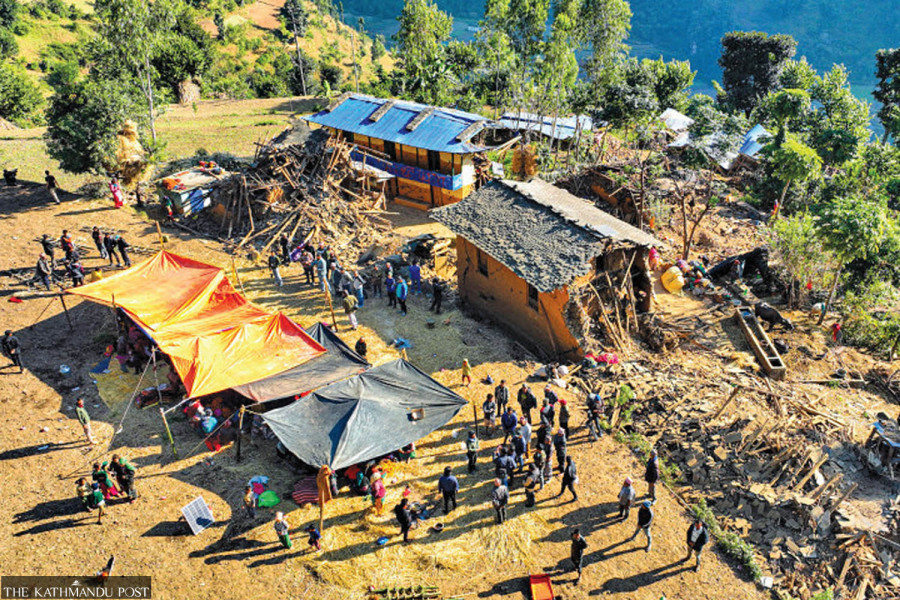Editorial
Damaging delay
The failure to carry out a detailed damage assessment after the Jajarkot earthquake has caused great hardship.
It has already been four months since the magnitude 6.4 earthquake hit Jajarkot and Rukum West districts, and their residents are still struggling to deal with the fallout. Harsh cold took its toll on 35 earthquake survivors over the winter, and the many more displaced are still living in temporary settlements. The situation, however, could have been better had the authorities done a detailed damage assessment (DDA) immediately after the earthquake.
The DDA determines the nature and extent of loss and damage, as well as recovery and construction requirements. It estimates the number of fatalities, injuries and displacements. Other things it does include assessing financial and property damage, as well as budgetary support to those in need. If done simultaneously with temporary settlements, the DDA provides immediate and long-term relief to victims. As per the experts, such an assessment lets people determine how much government support they would require and how much they need to manage on their own. This can also help the government make the right financial decisions.
Unfortunately, with no assessment of the Jajarkot earthquake, even building the temporary shelters for 83,200 households is being delayed, adding to the victims’ woes. Similarly, reconstruction work is on hold, as the government is preparing to conduct the assessment. The primary hope for the victims is Rs1 billion released by the finance ministry and Rs2 billion from the Prime Minister National Relief Fund, which is still insufficient as more than Rs4 billion is needed to fund temporary settlers. Experts are concerned that without DDA, the finance ministry will be in no rush to disburse the amount.
Soon after the devastating earthquakes hit Nepal in April and May of 2015, the National Planning Commission came up with a detailed assessment known as the Post Disaster Needs Assessment (PDNA) in June of that year. It was a critical document that led to rehabilitation and reconstruction works with support from several international development partners, including the World Bank, the United Nations, the Asian Development Bank, the European Union, and the Japan International Cooperation Agency. The commission also consulted with experts at home and in neighbouring countries. Coming today, the impression is that the authorities are not giving deserved attention to the Jajarkot earthquake victims.
A federal system based on a spirit of cooperation between the three tiers of the government has been inscribed in Nepal’s laws and constitution. Nonetheless, the areas far from the capital are always left in the lurch on support and attention from the federal capital. Who can forget how these districts were dismissed during the Covid-19 pandemic? We cannot afford to lose any more lives in Jajarkot and Rukum West as a result of the government’s failure to act on time.
Nepal should learn from its mistake and seek assistance from experts, foreign agencies and stakeholders to conduct DDA immediately. This is not a time to put off much-needed work that has previously proven fruitful in a similar situation. The federal government and the Supreme Court should work on solving policy and legal issues, respectively, related to the budgets for quake victims. The quake-affected areas and inhabitants are in dire need of both national and international support and attention. The sooner the assessment is carried out, the better for them.




 9.7°C Kathmandu
9.7°C Kathmandu














